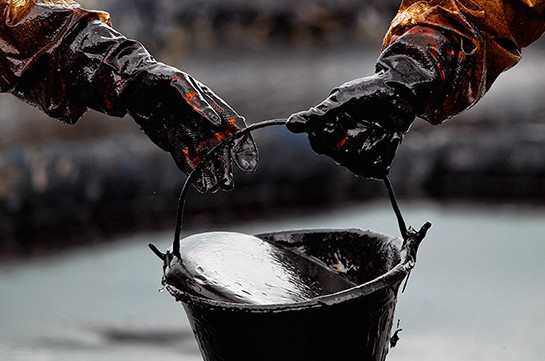
07/11/2018 12:13
Oil dips amid well-supplied market, Iran sanction waivers
Oil prices dipped on Wednesday as high output and U.S. sanction waivers allowing Iran’s biggest buyers to keep taking its crude reinforced the outlook for a well-supplied market.
Front-month Brent crude oil futures LCOc1 were at $71.83 per barrel at 0750 GMT, down 30 cents, or 0.4 percent, from their last close.
U.S. West Texas Intermediate (WTI) crude CLc1 was at $61.84, down 37 cents, or 0.6 percent.
Brent and WTI have slumped by 17.4 and 19.7 percent respectively from their four-year peaks in October.
U.S. bank J.P. Morgan said the “sell-off in oil was due to excessive crude” from rising production “whilst Iranian supply was still in the market”.
Washington re-imposed sanctions against Iran’s oil exports on Monday but granted waivers to its biggest customers, allowing limited imports for the next 180 days.
Refinitiv data showed Iranian exports have fallen to 1 million barrels per day (bpd) so far in November, down from around 3 million bpd in mid-2018.
But Iran supply is expected to rise after November as waivers are used to start ordering more Iranian oil.
“Waivers are likely to be more extensive than the market expected,” energy consultancy FGE said, estimating that waivers overall would allow 1.2 to 1.7 million bpd of exports.
Japan’s refiner JXTG Holdings said on Wednesday it might resume orders of Iranian oil in December.
In China, a flotilla of supertankers carrying around 9 million barrels of Iranian oil worth about $650 million is sitting outside Dalian port.
Most ships arrived in the last 30 days, shipping data showed, as Iran tried to get as much crude as possible into markets before the sanctions took effect.
“With the waivers, prices can be managed in the $70-$80 per barrel range, with the upside at around $85 per barrel and the downside limited to $65 per barrel,” FGE said.
For Iran, however, the waivers still mean it will likely receive no direct income from its sales as the United States freezes the money.
“Any of these waivers based payments for the oil by the exempt countries must go into escrow accounts ... The money
won’t directly go to Iran and it can only be used to buy certain non-sanctioned goods from its crude export customers,” J.P. Morgan said.








